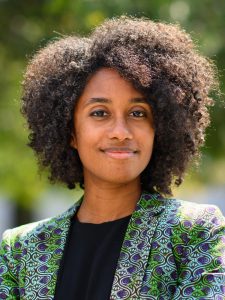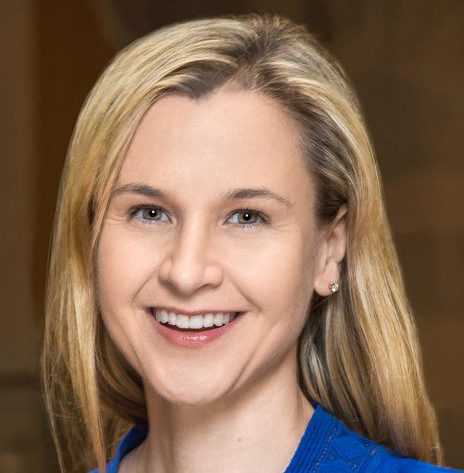Alan Blinder was the recipient of the 2023 Daniel Patrick Moynihan Prize, awarded by the American Academy of Political and Social Science. His most recent book, A Monetary and Fiscal History of the United States, 1961–2021, was recognized as a finalist for the Association of American Publishers 2023 PROSE Award for Excellence in Economics. Blinder’s research continues to focus on central banking, the latest work being an essay published by the Peterson Institute examining the Fed’s failure to hold inflation in check (“Was something structurally wrong at the FOMC?” October 2024) and a comprehensive survey paper on progress with and prospects for central bank communication with the general public co-authored with Michael Ehrmann, Jakob de Haan, and David-Jan Jansen and published in the Journal of Economic Literature. His main project going forward continues to be turning his pretty unique course on central banking (now labeled SPI 524) into a book. For many years, Blinder has taught this course to a mixture of MPA students, MFin students, a smattering of undergraduates, and the very rare PhD student. It is about monetary policy, of course, but also about the unusual position of the central bank in the government, why they make decisions by committee, how their decisionmaking must and does change during crisis—and much else.
was the recipient of the 2023 Daniel Patrick Moynihan Prize, awarded by the American Academy of Political and Social Science. His most recent book, A Monetary and Fiscal History of the United States, 1961–2021, was recognized as a finalist for the Association of American Publishers 2023 PROSE Award for Excellence in Economics. Blinder’s research continues to focus on central banking, the latest work being an essay published by the Peterson Institute examining the Fed’s failure to hold inflation in check (“Was something structurally wrong at the FOMC?” October 2024) and a comprehensive survey paper on progress with and prospects for central bank communication with the general public co-authored with Michael Ehrmann, Jakob de Haan, and David-Jan Jansen and published in the Journal of Economic Literature. His main project going forward continues to be turning his pretty unique course on central banking (now labeled SPI 524) into a book. For many years, Blinder has taught this course to a mixture of MPA students, MFin students, a smattering of undergraduates, and the very rare PhD student. It is about monetary policy, of course, but also about the unusual position of the central bank in the government, why they make decisions by committee, how their decisionmaking must and does change during crisis—and much else.
 Sylvain Chassang is an applied is microeconomist whose research interests are in game theory, industrial organization, and development. His recent publications include: “Valuing the Time of the Self-Employed,” with Daniel Agness, Travis Baseler, Pascaline Dupas, and Erik Snowberg (Review of Economic Studies, 2025); “Using Divide-and-Conquer to Improve Tax Collection,” with Lucia Del Carpio and Samuel Kapon (Quarterly Journal of Economics, 2024); “Regulating Collusion,” with Juan Ortner (Annual Review of Economics, 2023); “Robust Screens for Non-Competitive Bidding in Procurement Auctions,” with Kei Kawai, Jun Nakabayashi, and Juan Ortner (Econometrica, 2022); and “Data-Driven Incentive Alignment in Capitation Schemes,” with Mark Braverman (Journal of Public Economics, 2022). Chassang’s current research examines monitoring harassment in organizations with Laura Boudreau, Ada Gonzales-Torres, and Rachel Heath; and valuing the time of the self-employed with Daniel Agness, Travis Baseler, Pascaline Dupas, and Erik Snowberg. He is currently working on the importance of the used car market in understanding the impact of public policy in transport emissions.
Sylvain Chassang is an applied is microeconomist whose research interests are in game theory, industrial organization, and development. His recent publications include: “Valuing the Time of the Self-Employed,” with Daniel Agness, Travis Baseler, Pascaline Dupas, and Erik Snowberg (Review of Economic Studies, 2025); “Using Divide-and-Conquer to Improve Tax Collection,” with Lucia Del Carpio and Samuel Kapon (Quarterly Journal of Economics, 2024); “Regulating Collusion,” with Juan Ortner (Annual Review of Economics, 2023); “Robust Screens for Non-Competitive Bidding in Procurement Auctions,” with Kei Kawai, Jun Nakabayashi, and Juan Ortner (Econometrica, 2022); and “Data-Driven Incentive Alignment in Capitation Schemes,” with Mark Braverman (Journal of Public Economics, 2022). Chassang’s current research examines monitoring harassment in organizations with Laura Boudreau, Ada Gonzales-Torres, and Rachel Heath; and valuing the time of the self-employed with Daniel Agness, Travis Baseler, Pascaline Dupas, and Erik Snowberg. He is currently working on the importance of the used car market in understanding the impact of public policy in transport emissions.
 Ellora Derenoncourt works on inequality and labor markets. One of her research agendas focuses on the long-run determinants of racial inequality in the US. Derenoncourt’s article “Can you move to opportunity? Evidence from the Great Migration” (American Economic Review, 2022) showed that the Great Migration of Black Americans from the South to northern and western cities US marked a pivotal moment in the geography of opportunity for Black families. As backlash to the Migration intensified, areas once distinguished for high rates of upward mobility for Black children subsequently transformed into mobility deserts. Derenoncourt and Montialoux’s “Minimum wages and racial inequality” (Quarterly Journal of Economics, 2021) uncovered the first-order role historical federal minimum wage policy played in the trajectory of the Black-white earnings gap. Her paper with Chi Hyun Kim, Moritz Kuhn, and Moritz Schularick, “Wealth of two nations: the US racial wealth gap, 1860-2020” (Quarterly Journal of Economics, 2023), traces the US’s large and persistent racial wealth gap to its origins under slavery and Jim Crow. Future work in this area explores questions raised by this previous body of work, including the role of social insurance policies in racial inequality and the historical effect of incarceration in the U.S. on labor market gaps. A second research agenda explores determinants of wages in low-wage labor markets. Derenoncourt and Weil’s “Voluntary Minimum Wages: The Local Labor Market Effects of National Retailer Policies” (Quarterly Journal of Economics, 2025) explore this in the context of large retailers’ voluntary minimum wages and their impact on the broader labor market. In work with François Gerard, Lorenzo Lagos, and Claire Montialoux, she is exploring the impact of minimum wages on informal workers and inequality in Brazil as well as the role of unions in wage inequality in Brazil.
Ellora Derenoncourt works on inequality and labor markets. One of her research agendas focuses on the long-run determinants of racial inequality in the US. Derenoncourt’s article “Can you move to opportunity? Evidence from the Great Migration” (American Economic Review, 2022) showed that the Great Migration of Black Americans from the South to northern and western cities US marked a pivotal moment in the geography of opportunity for Black families. As backlash to the Migration intensified, areas once distinguished for high rates of upward mobility for Black children subsequently transformed into mobility deserts. Derenoncourt and Montialoux’s “Minimum wages and racial inequality” (Quarterly Journal of Economics, 2021) uncovered the first-order role historical federal minimum wage policy played in the trajectory of the Black-white earnings gap. Her paper with Chi Hyun Kim, Moritz Kuhn, and Moritz Schularick, “Wealth of two nations: the US racial wealth gap, 1860-2020” (Quarterly Journal of Economics, 2023), traces the US’s large and persistent racial wealth gap to its origins under slavery and Jim Crow. Future work in this area explores questions raised by this previous body of work, including the role of social insurance policies in racial inequality and the historical effect of incarceration in the U.S. on labor market gaps. A second research agenda explores determinants of wages in low-wage labor markets. Derenoncourt and Weil’s “Voluntary Minimum Wages: The Local Labor Market Effects of National Retailer Policies” (Quarterly Journal of Economics, 2025) explore this in the context of large retailers’ voluntary minimum wages and their impact on the broader labor market. In work with François Gerard, Lorenzo Lagos, and Claire Montialoux, she is exploring the impact of minimum wages on informal workers and inequality in Brazil as well as the role of unions in wage inequality in Brazil.
 William Dudley‘s recent research has focused on digital finance, sovereign debt, U.S. monetary policy, and banking regulation and supervision. With respect to digital finance, he has led the Digital Finance Project Team of the Bretton Woods Committee (with Carolyn Wilkins) and initiated a series of policy briefs that examine the dangers and opportunities in crypto markets and the potential positive use cases of the blockchain technology and decentralized finance (DeFi) and an evaluation of central bank digital currencies. He is a member of the BWC sovereign debt working group, which has published three papers on sovereign debt issues and the BWC Multilateral Reform Working Group, which has evaluated how the multilateral institutional structure needs to be reformed in order to address pressing global problems such as climate change. With respect to monetary policy, he has critiqued the current operating regime of the Federal Reserve and argued that how the Fed’s 2 percent average inflation targeting regime has been implemented ensured that the Fed would be slow to tighten monetary policy and that inflation would rise as a consequence. He also headed a working group for the Group of Thirty, which published a paper that evaluated what regulatory and supervisory changes are needed to address the shortcomings exposed by the 2023 banking crisis. Looking forward over the next two years, his research will continue to be focused on digital finance, sovereign debt, U.S. monetary policy, and regulatory reform.
William Dudley‘s recent research has focused on digital finance, sovereign debt, U.S. monetary policy, and banking regulation and supervision. With respect to digital finance, he has led the Digital Finance Project Team of the Bretton Woods Committee (with Carolyn Wilkins) and initiated a series of policy briefs that examine the dangers and opportunities in crypto markets and the potential positive use cases of the blockchain technology and decentralized finance (DeFi) and an evaluation of central bank digital currencies. He is a member of the BWC sovereign debt working group, which has published three papers on sovereign debt issues and the BWC Multilateral Reform Working Group, which has evaluated how the multilateral institutional structure needs to be reformed in order to address pressing global problems such as climate change. With respect to monetary policy, he has critiqued the current operating regime of the Federal Reserve and argued that how the Fed’s 2 percent average inflation targeting regime has been implemented ensured that the Fed would be slow to tighten monetary policy and that inflation would rise as a consequence. He also headed a working group for the Group of Thirty, which published a paper that evaluated what regulatory and supervisory changes are needed to address the shortcomings exposed by the 2023 banking crisis. Looking forward over the next two years, his research will continue to be focused on digital finance, sovereign debt, U.S. monetary policy, and regulatory reform.
 Seema Jayachandran is a development economist whose research focuses on environmental conservation, gender equality, health, and other microeconomic topics in developing countries. Her recent publications include: “Money (Not) to Burn: Payments for Ecosystem Services to Reduce Crop Residue Burning,” with Kelsey Jack, Namrata Kala, and Rohini Pande (American Economic Review: Insights); “Redesigning Payments for Ecosystem Services to Increase Cost-Effectiveness,” with Santiago Izquierdo-Tort and Santiago Saavedra (Nature Communications); and “Informing Mothers about the Benefits of Conversing with Infants: Experimental Evidence from Ghana,” with Pascaline Dupas, Camille Falezan, and Mark Walsh (American Economic Journal: Economic Policy, forthcoming). Jayachandran’s current research focuses on the gender gap in how long-distance moves affect spouses’ careers in Europe (with Lea Nassal, Matthew Notowidigdo, Marie Paul, Heather Sarsons, and Elin Sundberg) and on how the practice of cousin marriage in the Middle East affects women’s well-being (with Mohammed Al Shafaee, Erica Field, and Munir Squires).
Seema Jayachandran is a development economist whose research focuses on environmental conservation, gender equality, health, and other microeconomic topics in developing countries. Her recent publications include: “Money (Not) to Burn: Payments for Ecosystem Services to Reduce Crop Residue Burning,” with Kelsey Jack, Namrata Kala, and Rohini Pande (American Economic Review: Insights); “Redesigning Payments for Ecosystem Services to Increase Cost-Effectiveness,” with Santiago Izquierdo-Tort and Santiago Saavedra (Nature Communications); and “Informing Mothers about the Benefits of Conversing with Infants: Experimental Evidence from Ghana,” with Pascaline Dupas, Camille Falezan, and Mark Walsh (American Economic Journal: Economic Policy, forthcoming). Jayachandran’s current research focuses on the gender gap in how long-distance moves affect spouses’ careers in Europe (with Lea Nassal, Matthew Notowidigdo, Marie Paul, Heather Sarsons, and Elin Sundberg) and on how the practice of cousin marriage in the Middle East affects women’s well-being (with Mohammed Al Shafaee, Erica Field, and Munir Squires).
 Ilyana Kuziemko‘s research focuses on US economic inequality and, in particular, its interaction with political and labor-market institutions. “Local Economic and Political Effects of Trade Deals: Evidence from NAFTA” (2024, with Jiwon Choi, Ebonya Washington, and Gavin Wright) argues that the 1994 North American Free Trade Agreement lead to large employment losses in counties with industries dependent on pre-NAFTA tariffs and led voters in these counties to punish the Democrats in future elections. “Mobility for All: Representative Intergenerational Mobility Estimates over the 20th Century” (2024, with Elisa Jacome and Suresh Naidu) documents large increases in intergenerational relative mobility for the cohorts who entered the labor market in the low-inequality post-World War II decades, while mobility declined thereafter. “Compensate the Losers? Economy-policy preferences and partisan realignment in the US” (2022, with Nicolas Longuet Marx and Suresh Naidu) argues that, at least in the US, the Democratic Party’s evolution on economic issues has played an important role in explaining why less-educated voters have left the party. “The Cold War and the U.S. Labor Market” makes the case that massive Cold-War-era military procurement increased demand for blue-collar workers, reducing income inequality in the decades immediately after World War II.
Ilyana Kuziemko‘s research focuses on US economic inequality and, in particular, its interaction with political and labor-market institutions. “Local Economic and Political Effects of Trade Deals: Evidence from NAFTA” (2024, with Jiwon Choi, Ebonya Washington, and Gavin Wright) argues that the 1994 North American Free Trade Agreement lead to large employment losses in counties with industries dependent on pre-NAFTA tariffs and led voters in these counties to punish the Democrats in future elections. “Mobility for All: Representative Intergenerational Mobility Estimates over the 20th Century” (2024, with Elisa Jacome and Suresh Naidu) documents large increases in intergenerational relative mobility for the cohorts who entered the labor market in the low-inequality post-World War II decades, while mobility declined thereafter. “Compensate the Losers? Economy-policy preferences and partisan realignment in the US” (2022, with Nicolas Longuet Marx and Suresh Naidu) argues that, at least in the US, the Democratic Party’s evolution on economic issues has played an important role in explaining why less-educated voters have left the party. “The Cold War and the U.S. Labor Market” makes the case that massive Cold-War-era military procurement increased demand for blue-collar workers, reducing income inequality in the decades immediately after World War II.
 Stephen Redding‘s research interests include international trade, economic geography, urban economics, and productivity growth. Recent work has been concerned with heterogeneous firms and international trade, the distributional consequences of globalization, agglomeration forces, and transport infrastructure improvements. One strand of Redding’s research has been concerned with the determinants and effects of international trade between countries. In “Neoclassical Growth in an Interdependent World” (joint with Benny Kleinman, Ernest Liu and Motohiro Yogo and a revise and resubmit at the American Economic Review), they generalize the closed-economy neoclassical growth model to allow for costly goods trade and capital flows with imperfect substitutability between countries. They show that goods and capital market integration interact in non-trivial ways to shape the implications of counterfactual policies, such as a decoupling between China and the United States. Another strand of Redding’s research has explored the uneven spatial distribution of economic activity within countries. In “The Distributional Consequences of Trade: Evidence from the Grain Invasion” (joint with Stephan Heblich and Yanos Zylberberg and NBER Working Paper 32958), they examine the role of this internal distribution of economic activity within England and Wales in shaping the distributional consequences of the New World Grain Invasion in the second half of the 19th century. They show that locations with high wheat suitability within England and Wales experience population decline, rural-urban migration, structural transformation away from agriculture, increases in welfare transfers, and declines in property values, relative to locations with low wheat suitability.
Stephen Redding‘s research interests include international trade, economic geography, urban economics, and productivity growth. Recent work has been concerned with heterogeneous firms and international trade, the distributional consequences of globalization, agglomeration forces, and transport infrastructure improvements. One strand of Redding’s research has been concerned with the determinants and effects of international trade between countries. In “Neoclassical Growth in an Interdependent World” (joint with Benny Kleinman, Ernest Liu and Motohiro Yogo and a revise and resubmit at the American Economic Review), they generalize the closed-economy neoclassical growth model to allow for costly goods trade and capital flows with imperfect substitutability between countries. They show that goods and capital market integration interact in non-trivial ways to shape the implications of counterfactual policies, such as a decoupling between China and the United States. Another strand of Redding’s research has explored the uneven spatial distribution of economic activity within countries. In “The Distributional Consequences of Trade: Evidence from the Grain Invasion” (joint with Stephan Heblich and Yanos Zylberberg and NBER Working Paper 32958), they examine the role of this internal distribution of economic activity within England and Wales in shaping the distributional consequences of the New World Grain Invasion in the second half of the 19th century. They show that locations with high wheat suitability within England and Wales experience population decline, rural-urban migration, structural transformation away from agriculture, increases in welfare transfers, and declines in property values, relative to locations with low wheat suitability.
 Christopher Sims‘ research is on macroeconomic theory and policy, and monetary-fiscal coordination. His recent paper, “Optimal Fiscal and Monetary Policy with Distorting Taxes,” discusses government debt finance when interest rates are low. It shows that there can be a substantial fiscal cost from expanding debt, even when the rate of growth of the economy exceeds the interest rate. It also shows that an optimizing government may exploit low interest rates on government debt to postpone taxation. A second strand of his research examines the relation among aggregate private debt, spreads of risky over less risky interest rates, and economic activity. He explored this, with three co-authors, in the paper “Feedbacks: Financial Markets and Economic Activity,” which appeared in the June 2021 issue of the American Economic Review. Disturbances originating in the financial sector are an important source of business cycle variation, but they seem to be characterized initially by rises in spreads. Credit aggregates react passively to these disturbances, rather than generating them. A current project explores whether historical US data on inflation and fiscal variables in the US can shed light on the possible consequences of current very large fiscal deficits for future inflation.
Christopher Sims‘ research is on macroeconomic theory and policy, and monetary-fiscal coordination. His recent paper, “Optimal Fiscal and Monetary Policy with Distorting Taxes,” discusses government debt finance when interest rates are low. It shows that there can be a substantial fiscal cost from expanding debt, even when the rate of growth of the economy exceeds the interest rate. It also shows that an optimizing government may exploit low interest rates on government debt to postpone taxation. A second strand of his research examines the relation among aggregate private debt, spreads of risky over less risky interest rates, and economic activity. He explored this, with three co-authors, in the paper “Feedbacks: Financial Markets and Economic Activity,” which appeared in the June 2021 issue of the American Economic Review. Disturbances originating in the financial sector are an important source of business cycle variation, but they seem to be characterized initially by rises in spreads. Credit aggregates react passively to these disturbances, rather than generating them. A current project explores whether historical US data on inflation and fiscal variables in the US can shed light on the possible consequences of current very large fiscal deficits for future inflation.
 Evan Soltas‘ research focuses on the empirical evaluation of public policies, often in an urban or spatial context. In two recent papers, “The Price of Inclusion” and “Tax Incentives and the Supply of Low-Income Housing,” he has analyzed the impacts and effectiveness of key tax incentives for low-income housing development. In work with Charlie Rafkin (“Social Preferences and Bargaining Failure in Eviction”), he has studied eviction and the design of emergency rental assistance, highlighting the relevance of interpersonal hostility between tenants and landlords in causing eviction. He has also studied social safety net programs, asking whether incomplete take-up of such transfers is desirable or not in another paper with Charlie Rafkin and Adam Solomon (“Self-Targeting in U.S. Transfer Programs”). His ongoing work continues to address tax and regulatory issues in real estate markets as well as low-income housing subsidies.
Evan Soltas‘ research focuses on the empirical evaluation of public policies, often in an urban or spatial context. In two recent papers, “The Price of Inclusion” and “Tax Incentives and the Supply of Low-Income Housing,” he has analyzed the impacts and effectiveness of key tax incentives for low-income housing development. In work with Charlie Rafkin (“Social Preferences and Bargaining Failure in Eviction”), he has studied eviction and the design of emergency rental assistance, highlighting the relevance of interpersonal hostility between tenants and landlords in causing eviction. He has also studied social safety net programs, asking whether incomplete take-up of such transfers is desirable or not in another paper with Charlie Rafkin and Adam Solomon (“Self-Targeting in U.S. Transfer Programs”). His ongoing work continues to address tax and regulatory issues in real estate markets as well as low-income housing subsidies.
 Carolyn Wilkins is conducting research with Yasuo Terajima and Shirley Ren on the implications of monetary policy and the distribution of income. Wilkins also is presenting at several important venues on lessons learned for central banks during COVID: Hoover Institution (Getting Global Monetary Policy on Track, May 2-3, 2024); and Sveriges Riksbank (The Quest for Nominal Stability: Lessons from Three Decades with Inflation Targeting, May 23-24, 2024). In a collaboration with William Dudley, Wilkins co-leads the Bretton Woods Committee (BWC) Digital Finance Project Team (DFPT), which is tasked with identifying key outstanding issues and risks across the decentralized finance regime. Wilkins was one of three experts selected in July 2022 to conduct an independent review of the Reserve Bank of Australia (RBA), the first wide‑ranging review of the RBA since current monetary policy arrangements were put in place in the 1990s. The final report, An RBA Fit for the Future, was presented to the Treasurer in March 2023.
Carolyn Wilkins is conducting research with Yasuo Terajima and Shirley Ren on the implications of monetary policy and the distribution of income. Wilkins also is presenting at several important venues on lessons learned for central banks during COVID: Hoover Institution (Getting Global Monetary Policy on Track, May 2-3, 2024); and Sveriges Riksbank (The Quest for Nominal Stability: Lessons from Three Decades with Inflation Targeting, May 23-24, 2024). In a collaboration with William Dudley, Wilkins co-leads the Bretton Woods Committee (BWC) Digital Finance Project Team (DFPT), which is tasked with identifying key outstanding issues and risks across the decentralized finance regime. Wilkins was one of three experts selected in July 2022 to conduct an independent review of the Reserve Bank of Australia (RBA), the first wide‑ranging review of the RBA since current monetary policy arrangements were put in place in the 1990s. The final report, An RBA Fit for the Future, was presented to the Treasurer in March 2023.
 Leeat Yariv’s research focuses on political economy, market design, social and economic networks, and experimental economics. One of her recent papers, “Who Cares More? Allocation with Diverse Preference Intensities” (with Pietro Ortoleva and Evgenii Safonov) characterizes optimal allocation rules when individual preferences are known and when they are not. Goods and services—public housing, medical appointments, schools—are often allocated to individuals who rank them similarly but differ in their preference intensities. When preference intensities are private information, second-best allocations always involve such lotteries and, crucially, may coincide with first-best allocations.
Leeat Yariv’s research focuses on political economy, market design, social and economic networks, and experimental economics. One of her recent papers, “Who Cares More? Allocation with Diverse Preference Intensities” (with Pietro Ortoleva and Evgenii Safonov) characterizes optimal allocation rules when individual preferences are known and when they are not. Goods and services—public housing, medical appointments, schools—are often allocated to individuals who rank them similarly but differ in their preference intensities. When preference intensities are private information, second-best allocations always involve such lotteries and, crucially, may coincide with first-best allocations.
 Owen Zidar‘s work focuses on tax policy and inequality. Along with Eric Zwick and Gabe Chodorow-Reich, Zidar is studying the investment effects of the largest corporate tax reform in U.S. history. They wrote a more popular version in the Journal of Economic Perspectives. With Raj Chetty, John van Reenen, and Eric Zwick, Zidar is investigating the links between entrepreneurship and opportunity using US tax data. Danny Yagan, Eric Zwick, and Zidar have been awarded a new contract with the IRS to evaluate the importance of inherited wealth. Our broad goal is to research the efficiency and equity impacts of different proposals to try to inform policymakers about the design of the US tax system. Eric Zwick and Zidar are also writing a book called The Everywhere Millionaire: Who is Really Rich in America and How They Got There. For decades, small business owners have accumulated vast wealth in most every city and town in America. It is the story of how they got rich and how they’re changing their communities and the nation.
Owen Zidar‘s work focuses on tax policy and inequality. Along with Eric Zwick and Gabe Chodorow-Reich, Zidar is studying the investment effects of the largest corporate tax reform in U.S. history. They wrote a more popular version in the Journal of Economic Perspectives. With Raj Chetty, John van Reenen, and Eric Zwick, Zidar is investigating the links between entrepreneurship and opportunity using US tax data. Danny Yagan, Eric Zwick, and Zidar have been awarded a new contract with the IRS to evaluate the importance of inherited wealth. Our broad goal is to research the efficiency and equity impacts of different proposals to try to inform policymakers about the design of the US tax system. Eric Zwick and Zidar are also writing a book called The Everywhere Millionaire: Who is Really Rich in America and How They Got There. For decades, small business owners have accumulated vast wealth in most every city and town in America. It is the story of how they got rich and how they’re changing their communities and the nation.
